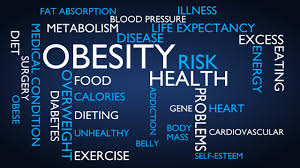Heart disease is among the leading causes of death worldwide. Yet, many of its risk factors are within our control. Whether you are a health-conscious adult, a family caregiver, a cardiac patient, or a fitness enthusiast, understanding how to prevent heart disease can help you lead a longer, healthier life. This post will guide you through practical tips and essential knowledge to keep your heart in top shape.

Why Heart Health Matters
Understanding the importance of a heart-healthy lifestyle is the first step toward prevention. Heart disease does not just impact the elderly; it can affect adults of all ages. Knowing the causes and prevention of heart disease is crucial for everyone. Heart disease often leads to severe health complications such as heart attacks, strokes, and other cardiovascular issues. By adopting a heart-healthy lifestyle, you can significantly reduce your risk. This means making mindful choices about diet, exercise, and overall wellness. Taking proactive steps toward heart health can also improve your quality of life. Reduced risk of heart disease often translates to more energy, better mood, and a greater ability to enjoy daily activities.
The Basics of Heart Disease
Before diving into prevention strategies, lets understand what heart disease is. Heart disease encompasses various conditions, including coronary artery disease, heart attacks, arrhythmias, and heart failure. Coronary artery disease (CAD) is the most common type of heart disease. It occurs when the coronary arteries become narrowed or blocked, usually due to plaque buildup. This can lead to chest pain, heart attacks, or other serious complications. Another critical condition is arrhythmia, where the heart beats irregularly. This can be due to electrical signal malfunctions within the heart. While some arrhythmias are harmless, others may require medical intervention.
Recognizing Risk Factors
Several risk factors contribute to heart disease, some of which are beyond our control, like age and genetics. However, many are lifestyle-related and can be managed or mitigated to reduce risk. High blood pressure is a significant risk factor for heart disease. It forces the heart to work harder than usual, increasing the likelihood of complications. Regular monitoring and maintaining a healthy lifestyle can help manage blood pressure levels. High cholesterol levels, particularly Low-Density Lipoprotein (LDL) cholesterol, can lead to plaque buildup in arteries. This narrows the arteries and increases the risk of heart disease. A balanced diet and regular exercise are essential in managing cholesterol levels.
Adopting a Heart-Healthy Diet
Eating a heart-healthy diet is one of the best ways to prevent heart disease. Focus on consuming nutrient-rich foods that contribute to overall cardiac health. Incorporate plenty of fruits and vegetables into your daily meals. These foods are high in fiber, vitamins, and antioxidants, which help protect your heart. Aim for a colorful variety to get a wide range of nutrients. Opt for whole grains instead of refined grains. Whole grains like oatmeal, brown rice, and whole wheat bread are rich in fiber, which can help lower cholesterol levels and reduce heart disease risk.
Physical Activity and Heart Health
Regular exercise is crucial for maintaining a healthy heart. It helps control weight, lower blood pressure, and reduce bad cholesterol levels. Aim for at least 150 minutes of moderate-intensity aerobic activity per week. Cardiovascular exercises such as walking, biking, or swimming are excellent for heart health. These activities get your heart pumping and improve circulation, which strengthens the heart muscle and improves overall cardiovascular function. Strength training is also beneficial. Incorporate weight lifting or resistance exercises into your routine at least two days a week. Building muscle can help burn more calories and improve body composition, contributing to heart health.
Managing Stress for Heart Health
Chronic stress can negatively impact your heart. It is essential to find effective ways to manage stress to prevent heart disease. Techniques like mindfulness, meditation, and deep-breathing exercises can help. Practicing mindfulness involves staying present and fully engaging with the current moment. This helps reduce stress and anxiety, leading to better mental and physical health. Set aside a few minutes each day for mindfulness exercises. Meditation is another powerful tool. Regular meditation can lower blood pressure, reduce stress hormone levels, and improve overall well-being. Even a short daily session can make a significant difference.
Importance of Regular Health Check-Ups
Regular health check-ups are vital in preventing heart disease. They allow for early detection and management of risk factors like high blood pressure and cholesterol. Schedule routine visits with your healthcare provider to monitor your heart health. During these visits, your doctor may perform tests like blood pressure readings, cholesterol tests, and electrocardiograms (ECGs). These tests provide valuable information about your hearts condition and help identify any potential issues early on. Do not hesitate to discuss any concerns you have with your doctor. Open communication ensures you receive the best care and guidance tailored to your needs.
Avoiding Smoking and Limiting Alcohol
Smoking significantly increases the risk of heart disease. The chemicals in tobacco smoke can damage the heart and blood vessels, leading to atherosclerosis. Quitting smoking is one of the best things you can do for your heart health. If you smoke, seek support to quit. There are numerous resources available, including counseling, medication, and support groups. Quitting smoking not only benefits your heart but also improves overall health. Limiting alcohol consumption is also crucial. Excessive drinking can lead to high blood pressure, heart failure, and other cardiovascular problems. Stick to moderate drinking guidelines—one drink per day for women and up to two drinks per day for men.
The Role of Sleep in Heart Health
Quality sleep is essential for heart health. Poor sleep patterns can increase the risk of hypertension, obesity, and diabetes, all of which are risk factors for heart disease. Aim for 7-9 hours of sleep per night. Establish a regular sleep schedule by going to bed and waking up at the same time every day. Create a relaxing bedtime routine to help signal to your body that it is time to wind down. Avoid screens and caffeine before bed. If you are experiencing sleep problems, talk to your healthcare provider. Conditions like sleep apnea can significantly impact heart health and require medical attention.
Preventing Heart Attacks with Aspirin
In some cases, taking aspirin can help prevent heart attacks. Aspirin reduces the bloods ability to clot, which can prevent blockages in the arteries. However, aspirin therapy is not suitable for everyone and should be discussed with a doctor. Your doctor will consider your individual risk factors before recommending aspirin therapy. This includes evaluating your age, medical history, and potential for side effects. Always follow your doctors guidance when it comes to medication. Remember, aspirin therapy is just one part of a broader strategy for preventing heart disease. It should be combined with lifestyle changes for the best results.
Staying Informed and Engaged
Keeping yourself informed about heart health is a powerful tool in preventing heart disease. Stay updated on the latest research, guidelines, and recommendations from trusted medical sources. Engage with communities and support groups focused on heart health. Sharing experiences and tips with others can provide motivation and encouragement. You can also learn from the successes and challenges of others on the same journey. Consider participating in heart health awareness events, such as walks or runs. These events raise awareness and funds for heart disease research while providing a sense of community and purpose.
Conclusion
Taking steps to prevent heart disease is a lifelong commitment. By adopting a heart-healthy lifestyle, understanding risk factors, and staying informed, you can significantly reduce your risk and enjoy a healthier life.
Remember, small changes can lead to significant improvements in heart health. Start by making one positive change today, and build on that momentum. Whether it is incorporating more fruits and vegetables into your diet, starting a new exercise routine, or managing stress, every effort counts.
For personalized guidance and support, consider consulting a healthcare professional. They can provide tailored advice and help you develop a comprehensive plan for maintaining heart health. Stay proactive, stay informed, and take charge of your heart health today.















Vashu K
Interesting blog thanks for giving such information.